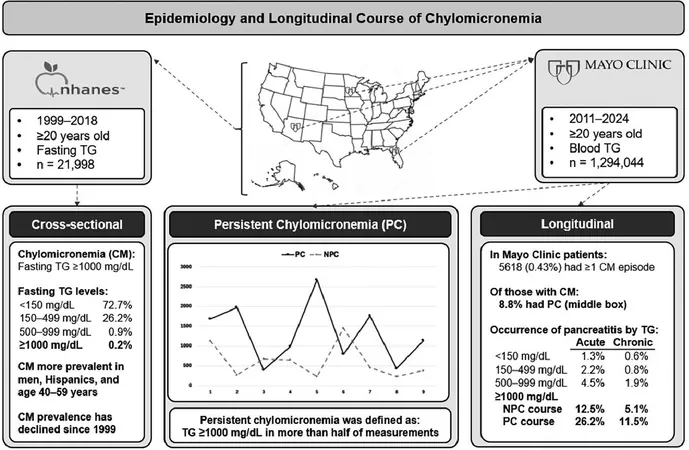
Breakthrough Study Reveals Secrets to Boosting Colorectal Cancer Screening Uptake in Scotland!
2025-03-27
Author: Yu
A groundbreaking study from Scotland has unveiled a simple yet powerful technique to enhance participation in fecal immunochemical testing (FIT) for colorectal cancer screening, a crucial measure in detecting this common yet preventable disease. Published in The Lancet and led by Dr. Kathryn A. Robb from the University of Glasgow, the research illustrates the effectiveness of setting a return deadline for testing in invitation letters.
Unpacking the Study
The trial, codenamed TEMPO, involved 40,000 adults aged between 50 to 74, all eligible for colorectal cancer screening and recruited in June and July 2023. Participants were randomly divided into eight distinct groups:
1. Standard invitation (control group—no deadline, no planning tool) 2. 1-week suggested deadline 3. 2-week deadline 4. 4-week deadline 5. Problem-solving planning tool (no deadline) 6. Planning tool + 1-week deadline 7. Planning tool + 2-week deadline 8. Planning tool + 4-week deadline
The study's primary measure was the percentage of completed FITs returned to a colorectal cancer screening laboratory within three months following the mailing of invitations.
Key Insights Uncovered
The results were quite telling. The control group saw a FIT return rate of 66.0%. Significantly, the group with a 2-week deadline recorded the highest return rate at 68.0%—a mere 2% more than the control group, suggesting that a timeline can indeed motivate participation. In contrast, those who received the planning tool without a deadline returned the FITs at the lowest rate of 63.2%.
Perhaps the most striking finding was the clear advantage of a deadline: participants who were assigned a deadline had higher chances of returning their tests (adjusted odds ratio [OR] = 1.13). On the flip side, the planning tool didn't seem to effectively boost return rates, with an adjusted OR of 0.98.
Interestingly, in scenarios where no deadline was set, the introduction of a planning tool had a negative effect on participation, illustrating the importance of a clear timeframe.
Why This Matters
The implications of this study are crucial—not only is it a cost-effective intervention, but it also is incredibly straightforward to integrate into regular practice. The study concludes that by merely adding a single sentence about a deadline in the invitation letter, healthcare providers can significantly improve timely returns of the FIT, ultimately leading to earlier detection and better outcomes for colorectal cancer patients.
This research aligns with growing calls for enhanced public health initiatives aimed at improving cancer screening rates, which remain alarmingly low in various demographics. As Scotland sets a new standard, the question arises: could other regions follow suit to save lives and optimize cancer prevention strategies?
With colorectal cancer being one of the leading causes of cancer-related mortality, focusing on improving screening uptake through simple adjustments may be an essential step toward combating this disease more effectively. The proof is in the deadlines!


 Brasil (PT)
Brasil (PT)
 Canada (EN)
Canada (EN)
 Chile (ES)
Chile (ES)
 Česko (CS)
Česko (CS)
 대한민국 (KO)
대한민국 (KO)
 España (ES)
España (ES)
 France (FR)
France (FR)
 Hong Kong (EN)
Hong Kong (EN)
 Italia (IT)
Italia (IT)
 日本 (JA)
日本 (JA)
 Magyarország (HU)
Magyarország (HU)
 Norge (NO)
Norge (NO)
 Polska (PL)
Polska (PL)
 Schweiz (DE)
Schweiz (DE)
 Singapore (EN)
Singapore (EN)
 Sverige (SV)
Sverige (SV)
 Suomi (FI)
Suomi (FI)
 Türkiye (TR)
Türkiye (TR)
 الإمارات العربية المتحدة (AR)
الإمارات العربية المتحدة (AR)